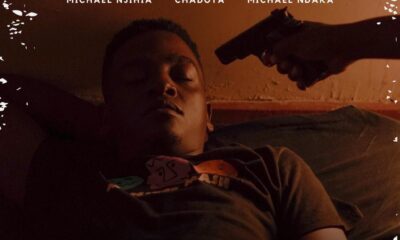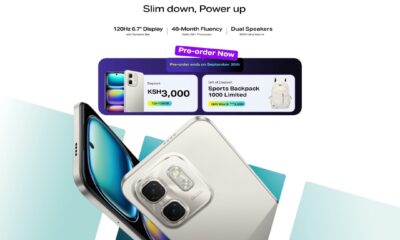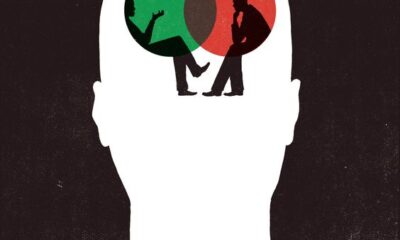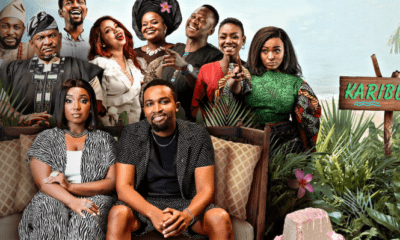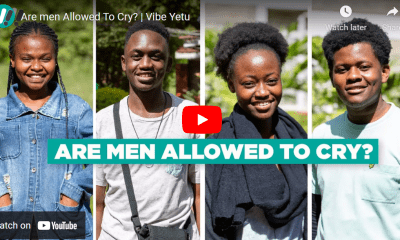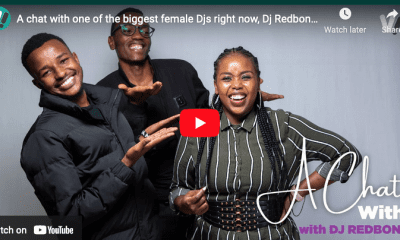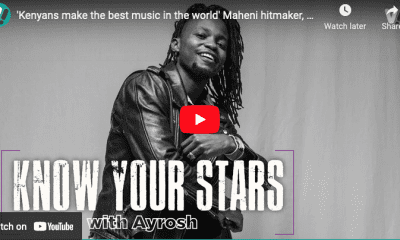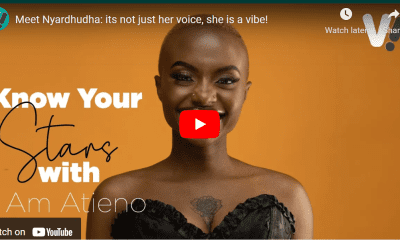Editorial
A Jesse Dele Series : Unveiling the Good in the Bad
In life we have both the Good and the Bad. However taking Positives from the Negative goes a long way .
Published
1 year agoon

While in Kisumu Boys High School, I played for the school’s football team until the beginning of Form 3. By played I mean 2 matches, but that still counts! During my time, we chose between Geography and History. Our Geography teacher was a beast. He would whip us scathingly for not knowing the formation of a volcano daily. Everyone feared whenever it was his turn on the timetable. Too strict!
Mode (Teacher) wa Geography made us choose between sports and his subject as he would teach during ‘games time.’ This was to catch those still in sports. I gave up on my talent to chase the grade and although it hurts to this day, I wouldn’t have passed without doing so.
Often rap and hip hop are scrutinized for their negative promotion of senseless and petty violence, philistinism, substance abuse, and misuse of sex just to name a few. However, there are innumerable positives that our favourite artists tell us regardless. Romans 3:10-12 King James Version (KJV) as it is written,’ There is none righteous, no, not one: There is none that understandeth.’ Why are we quick to judge?
Positive Ego
Churchill Mandela, better known by his stage name Scar Mkadinali from ‘Wakadinali’ had a great point during his interview on Switch TV in May of 2019. He was asked why hip-hop artists have to have an ego. His response was, “If I came here and was an agreeable person you would forget about me and no one would talk about me.”
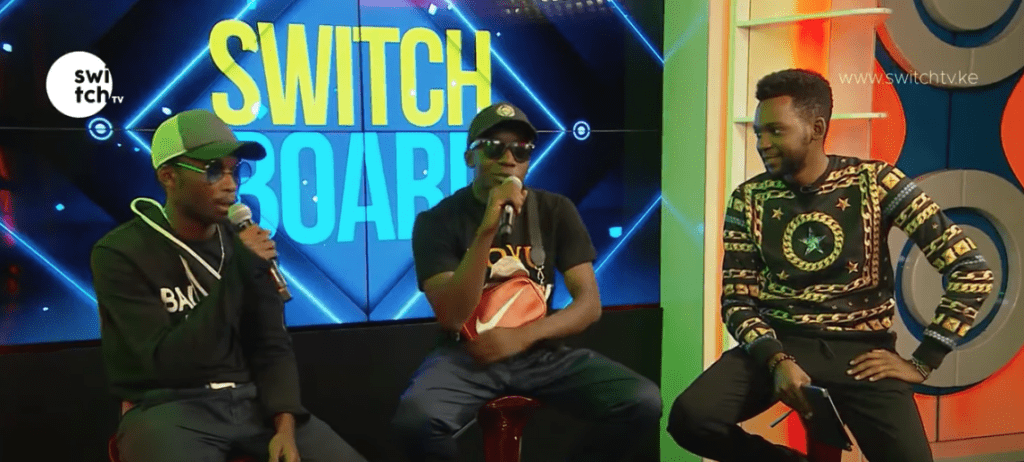
This teaches us that confidence is key and knowing one’s worth will save you from disrespect, ‘low ball’ offers, and negative media coverage as this means being real, true to one’s word and having honor and accountability. My take from this is you can’t please everyone. No matter what you do others will envy, point, ridicule, judge and so on. Ambition and persistence while believing in one’s ways and sticking to them is commendable. We learn through Scar’s wise and indirect answers to 2 things. Nothing is ever as it seems as the question of “who do you listen to” by Sami Flinch during the interview tests whether Scar will give anyone any radio time. He doesn’t by saying he only listens to Domani Munga sitting next to him. Second, we can always bend the rules in our favour. Sami sensed tension and decided to de-escalate the pressure by promoting Scar’s #KovuChallenge. At the time his breakout hit ”Kovu” Was the talk of the town. We learn from Sami that sometimes it’s okay to back down.
Bad fun
Any elder you speak to will tell you life is short, and value friendships, little moments such as walking on the beach or laughing with your partner while being responsible and a good person in general. Also, our elders tell us of their fun days as youth. The mischief they got up to. They remind us to not be so serious! Most times I’m on public transportation the music is so deep, so sad. Other times it’s wild or happy. Sometimes introspection is good but in the words of James Edward alias, Babytron, “So many people make music for being sad, my music is meant to have fun.” He is known for his wordplay, unique 80s beat selection, punchlines and sharp lyricism. James has been known for fraud since he was in “grade school.” He raps, “ I been scamming since the iPhone 6” on the song “Area 51” which suggests he started scamming at 14 years of age. He has never caught a case of fraud but was booked for possession of a controlled substance on 8th February of 2023. Otherwise, his squeaky clean police record leaves fans questioning whether he lives his raps but I think he’s all facts.

In high school, he has numerous high-end fashion such as Burberry shirts, designer shoes, goyard bags, wads of cash in 100-dollar bills and so on. He was earning a lot more than the average high schooler. He dropped out of college and began seriously rapping and he already had a chain when he was signed. He brags about only ever eating 100$ dollars plus meals, wearing 10,000$ dollar fits, and throwing his air forces on the wire (as seen in hoods to represent a drug sale point) once they get creased and so on. His music is generally meant to brag, have fun and play around with new sounds such as stuttering while rapping which James calls “Stutter Flow.” His creativity, lingo, fashion sense and unique appearance make him stand out. He seems to not care about anything; sometimes we all feel like that and do need to tune out.
Robotic work rate
Kentrell Gaulden, alias Youngboy Never Broke Again released his first mixtape in 2015 after releasing singles on Soundcloud in 2011. Since then, his discography consists of 6 studio albums, 3 compilation albums, 26 mixtapes (including 6 collaborative mixtapes), 3 extended plays, and 102 singles (including 23 as a featured artist). He drops music every other week and puts out more music than anyone you can think of. With more than 30 billion total streams and 109 RIAA-certified releases including 3 platinum or double platinum albums, NBA YoungBoy is one of the most listened-to artists in the world.
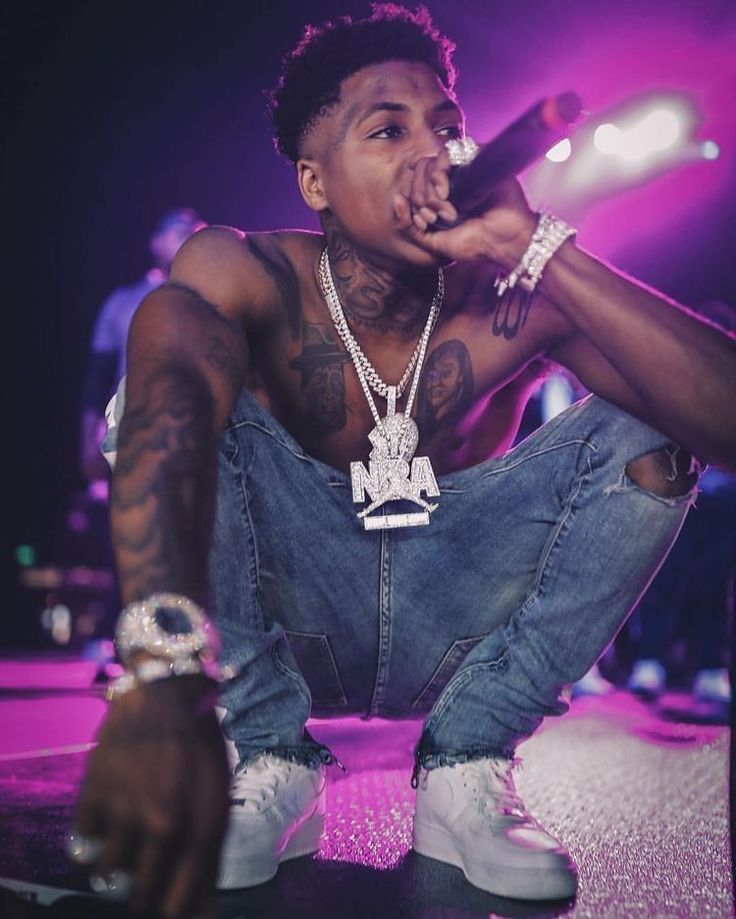
Youngboy Never Broke Again(YNBA) -Photo Courtesy
He says his grandfather told him to work hard and save his money, which we can all relate to. He has done this under much pressure. His father got life in prison for a home invasion turned first-degree murder charge while he was 8 years old. He began smoking cigarettes at 11. He has been in juvenile since 10. There are many pictures of him as a youngster with an ankle monitor on house arrest. He only knows the streets gang life and drug deals as is mostly reflected in his music. He was mostly caused by himself through his numerous encounters with the law. He was booked for an attempted murder in 2016 after his cousin was shot down in Baton Rouge. Before this, he was booked for robbery as a 15-year-old. In 2019 he was taken in on simple battery family charges. During 2020 he was taken in for drug and weapons charges as he was shooting a music video for ‘Chopper City’. He is currently on house arrest for both although he beat the drugs and is yet to go to federal court for the weapons. He started a Stop the Violence campaign in 2023 and is trying to clean up his image. Despite all this, he has risen to the top working in the studio every day and his robotic work rate has made him a self-made millionaire.
Conclusion
In essence, the journey through challenges, the positive messages in music, the importance of confidence, the joy of having fun, and the value of a strong work ethic collectively weave a narrative of resilience, optimism, and success emerging from adversity. We can learn different attributes from these 3 artists and how humans are diverse and can thrive in different environments and situations
Jesse Dele
This article is originally written by Jesse Dele
You may like


“Zoza”: A Story of Loyalty, Betrayal, and Redemption


Packed Fall 2024 Anime Lineup: What to Expect This Season


Infinix’s Hot Launch; The All New Hot 50 Series is Here


A Woman of Firsts by Edna Adan: A Story That Will Empower You To Face That Scary Decision You’ve Always Wanted To


Suicide Prevention Through Relatable Conversations


Best Henry Cavill Films to Watch (And Maybe Fix the Weather)
Editorial
Wanna Study in China? How To Begin Your Student Application Process
Published
10 months agoon
September 12, 2024By
Eric Kamau
Choosing To Study In China Was A Huge Decision For Me
Especially since no one in my family had ever studied abroad before.
My family had all sorts of fears—like the sky-high costs, culture shock, freezing winters, and the possibility of visa rejections—but I was determined to take the leap.
It wasn’t easy, but the thought of getting a world-class education and broadening my horizons was too exciting to pass up.
I considered studying in the USA, Canada, Finland, & Australia, but China stood out.
The application process was straightforward, and the costs were much more manageable.
After some research, I set my sights on Zhejiang University (ZJU), ranked 44th globally.
Affiliated with 7 top hospitals, world-class government-funded resources, and a leading research institute promised an unparalleled medical educational experience.
The prospect of hands-on clinical training, exposure to diverse specialties, and affordable living costs in China further solidified my decision.
Often referred to as the “Cambridge of the East,” ZJU far exceeded my expectations, turning my leap into the unknown into one of the best decisions of my life.
This brief article is for anyone interested in:
- Applying to top-ranking Chinese universities.
- Understanding the visa process.
- Knowing what to expect upon arrival in China.

Application Process
When applying to Chinese universities, be thorough and organized.
Requirements vary, but here’s a guide using ZJU as an example:
- Personal Statement: Write up to 800 words explaining why you want to study medicine in China.
- Introductory Video: Create a 1-minute video about yourself and your interest in the university.
- Academic Records: Send your KCPE and KCSE, as well as your high school and/or university transcript showing your performance over the years.
- Recommendation Letters: 2 from your high school teachers. If in uni, 1 from your professor.
- Volunteering Experience and CV: Include a letter from your volunteer supervisor and prepare a CV outlining your achievements.
If shortlisted, you’ll be invited for an interview.
It’s conversational but rigorous, with unpredictable questions.
Stay relaxed and genuine—don’t recite memorized answers.

Visa Process
Once you get accepted, getting your visa is one of the first big steps.
Here’s how you can go about it:
- Online Application: Fill out the visa application on visaforchina.cn with your personal details and study plans
- Gather Your Documents: You’ll need a few key documents:
- Passport (valid for at least 6 months).
- Chinese passport-sized photos
- University admission letter.
- JW02 form (official invitation to study)
- Financial Proof: If you have a sponsor, they must show proof of funds.
- Fees and Processing: The visa application fee depends on how quickly you need it. The standard processing time is about a week, but you can pay extra to get it done in 2 days.
You don’t need a physical exam before leaving; that’ll be done in China for around 8,000 Ksh.

Learning Chinese
You’re ahead of the game if you’ve already started learning Chinese in Kenya.
All Chinese universities offer the option to take your courses in Chinese if you’re proficient enough.
Even if you study in English, learning some Chinese can help with daily life, connecting with professors, and making friends. Plus, it’s a flex!
Arrival in China
Stepping off the plane in China feels like landing on a different planet. Everything is bigger—seriously, the airports are massive.
If you don’t have someone to pick you up, get ready for a wild ride.
Everything is written in Chinese, and English speakers are rare, so a translator app is a lifesaver.
Just remember, some apps you use in Kenya might not work in China without a VPN, and those can be tricky to download once you’re there.
Navigating the metro, bullet trains, buses, and taxis is like figuring out a giant puzzle.
Didi, the Chinese version of Uber, is only in Chinese, so unless you’re a language pro, it’s going to be interesting.
And don’t even think about using cash—China is all about QR codes. Paying for anything is challenging without Alipay (like Mpesa for foreigners).
Somehow, I managed to survive all alone! You can too!

The Weather In China?
Kenya’s climate is like heaven in comparison.
Summers are so hot and humid that stepping outside feels like entering a sauna. Without an air conditioner set to 16°C, you’ll be sweating buckets even indoors.
And forget about cool mornings—those don’t exist here.
Winter? That’s a whole other beast. Ignore the memes of Nairobians in July.
For Any Youth Thinking About Studying Abroad
Especially in China, go for it! It’s a life-changing experience.
You’ll meet people worldwide, learn from brilliant minds, and experience a system that values merit over connections. The curriculum is tough, but the personal growth is worth it.
Beyond academics, you’ll gain intercultural skills, soft skills, and a better understanding of yourself. You’ll face challenges head-on and discover strengths you never knew you had.
It’s more than education—it’s an adventure shaping your future.
Editorial
From Couch Gamer to Esports Champion: Your Guide to Competitive Gaming
Published
10 months agoon
August 30, 2024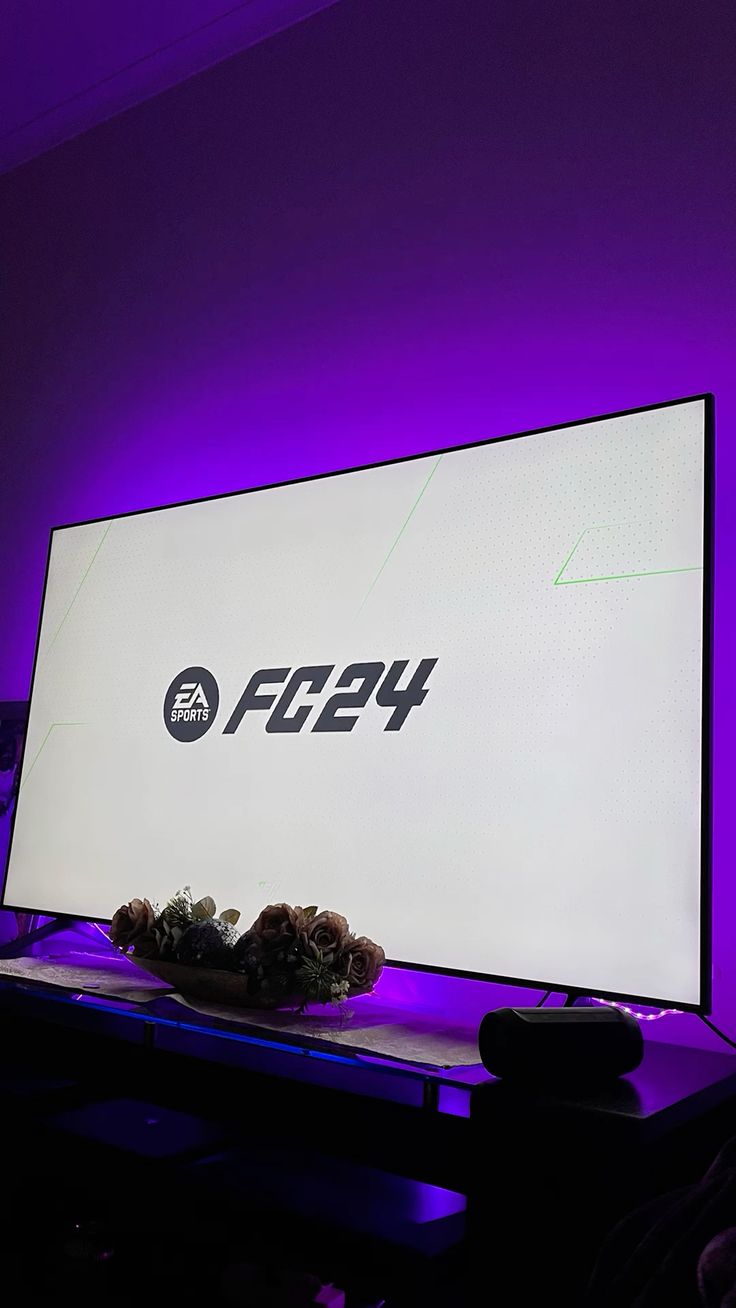
Utacheza ‘loser’ for how much longer? If you really think you are that good, why not put that to the test? Why not make some money and name for yourself? The world of competitive gaming has exploded, and it’s not just something you see in flashy tournaments in the UK or read about in gaming magazines. If you’ve ever found yourself completely immersed in a game at home, or at your locals whether it’s dominating in FIFA, constructing the perfect strategy in League of Legends, or building in Fortnite, there’s a good chance you’ve got the skills to compete against other gamers. This could mean something. You know how if you’re good at football you go places if you get spotted or if you can run pretty fast you get to represent the country? Well, gaming is now in that same category and could take you places.
Welcome to the World of Esports
Esports, or electronic sports, has become a massive global phenomenon. Picture this: stadiums packed with cheering fans, not for a Manchester City vs Manchester United match, but to watch teams of gamers compete in intense, fast-paced virtual battles. These are real athletes of the digital age, training hard, developing strategies, and competing for glory and substantial cash prizes. Esports is a billion-dollar industry, and it’s only growing. There are leagues and tournaments dedicated to popular games like FIFA, Fortnite, and Call of Duty, with some events drawing in millions of viewers worldwide.
Let us know which games you think you are the best at in the comments
Esports in Africa and Kenya
You might think that this gaming fever is something only happening far away, but Africa is rapidly becoming a hotspot for esports too. In Kenya, the gaming community is vibrant and growing. Local tournaments are becoming more frequent, offering a platform for gamers to showcase their skills. This September 7th, all eyes will be on the Gaming Impact Grand Series at the Kenya Cinema, one of the most anticipated esports events of the year. Organised by AlphaClan Esports in partnership with EsportsAfrica, SmartVR, Jiwe Esports, Paydhq, Barbah Games, Kenya Film Classification Board, and VibeYetu, this event is a golden opportunity for local gamers, you, to step into the limelight.
From Home Gamer to Esports Pro
So, how do you go from playing games at home to competing in these high-stakes tournaments? The first step is simple: start competing. Many gamers begin their journey by entering local competitions, whether online or at nearby gaming hubs. Not only do these tournaments provide a platform to test your skills, but they’re also fantastic for meeting other gamers, learning new techniques, and maybe even finding a team to join. Even more similar to reality sports, at these local tournaments your talent could be spotted by sponsors and coaches.
Imagine going to the Gaming Impact Grand Series, not just as a spectator, but as a competitor. Picture yourself going head-to-head with other gamers, feeling the rush as you score that winning goal in FIFA or pull off a last-second victory in a shooter game. It’s not just about winning; it’s about the experience, the community, and the thrill of the game. Who knows, your name might be the next one called out as a champion!
The Career Potential in Gaming
Beyond the glory of competition, gaming has even more career potential. Pro gamers can earn money through tournament winnings, sponsorships, and even streaming their gameplay online. But it doesn’t stop at being a player. The gaming industry is vast, with roles for game developers, designers, shoutcasters (the commentators of the esports world), and coaches. If you’ve ever had a passion for gaming, there’s a place for you in this industry. And getting involved in local tournaments is the first step towards making that passion a profession.
If you love gaming, don’t limit yourself to just playing at home. Explore the competitive side of gaming, enter local tournaments, and see where your skills can take you. The Gaming Impact Grand Series is just around the corner, and it’s the perfect place to start. Whether you come as a competitor or a spectator, you’re sure to leave with new friends, new skills, and a newfound love for the world of esports. So, why not give it a shot? You could be the next big name in Kenyan esports!

If you are like me, then you fall in love fast and face first. Which means the heartbreaks leave you in pieces. Heartbreaks feel like someone yanked your heart, slowly grating it and making fun of you, in front of their friends and your friends. It feels like a log on your chest and a stone on your back. I suppose this should be a how to fall in love with decorum article but I am yet to learn that. So, here is a heartbreak manual for suckers of love, if you are like me.
There is nothing wrong with you
Understand there is nothing wrong with you and are not to self-loathe over how you feel. It takes a lot of courage and bravery to fall in love without restricting yourself. My last heartbreak had me swearing I would never ever fall in love like that. I would guard my heart. I would be strategic with my love. I would never ever lower my guard. It is very okay to feel this. But, do not suppress yourself because someone took advantage of your heart, of you. We all make mistakes and the lesson here is you leave immediately the red flags appear, not closing your heart out entirely.
It’s a very brave thing to fall in love. You have to be willing to trust somebody else with your whole being, and that’s very difficult, really difficult, and very brave.
Nicole kIdman
Support system
Call your friends or support system. I know you feel embarrassed and maybe ashamed because some of them might have forewarned you but still, talk to them. Sometimes, my legs feel numb when the pain hits the right spot. Unable to function, I have found having a friend around helps. (Is this a safe space?) I have booked therapy sessions to discuss a heartbreak. Having a certified therapist walk me through the steps made the process easier. However, what started as getting over my ex turned to self-worth, and self-acceptance sessions, which brings me to my next point.
Make better decisions next time
Miss, when you let red flags look pink, what do you expect? I know people switch up and that is not your fault. But, not leaving when they switch up is your fault. Your self-concept plays a huge role in how you face love and how you recover from it. As I mentioned, there is nothing wrong with falling completely in love. But being a certified lover does not exempt you from choosing better people. You see, when your self-worth is low, you will reject or sabotage healthy loving relationships. When you do not accept every part of you, you will fall in love with people who mirror this. Until you love, accept and care for yourself you will keep manifesting lukewarm love. You are deserving of more.
We wish we had a trailer into people’s lives that way we know what we are getting ourselves into. To that, I say, we do. People can lie and pretend to be someone they are not, but at the end of the day they do show us who they are, and it slips out. All you have to do is see and acknowledge it, hard as it may be. For example, if you want someone to fall in love with, notice their pattern. I know, I know, they might lie, but check how they love themselves, people do not have the ability to lie to themselves. Surely, someone who denies themselves ease will give you the soft love you wish for. Someone who tells you love should be strategic will not give you the fairy tale you so badly want.
Express what you feel
If you have a hard time verbalizing your pain, write about it. I create time to write what I feel. Using prompts even when you are not a writer helps, below are some of the journal prompts I use:
– Write a letter to your ex expressing anything you wish you had said
– Write a list of things you liked about them. Highlight the characters you have.
– Write a list of things you hate about them.
– Vividly describe what you feel. Where does it hurt, what part of your body feels heavy etc.
– Write a letter to yourself on all the things you would love to hear at that moment.
Talking also helps. Call a friend and rant, I promise they weren’t joking when they said A problem shared is a problem half solved. What is not okay, is not checking in with them first. Your heartbreak should not excuse basic manners.
There is no one cure-for-all to heartbreaks. One heartbreak had me in the gym, another one had me writing poetry and another in therapy. The only way not to heal is by embarrassing yourself by not moving on when you really have to.
It takes a brave heart to heal, and fall in love – completely. Do not be strategic with love, soon you will find a certified lover. May you find the courage to fall in love again., and again. Heal and find love.
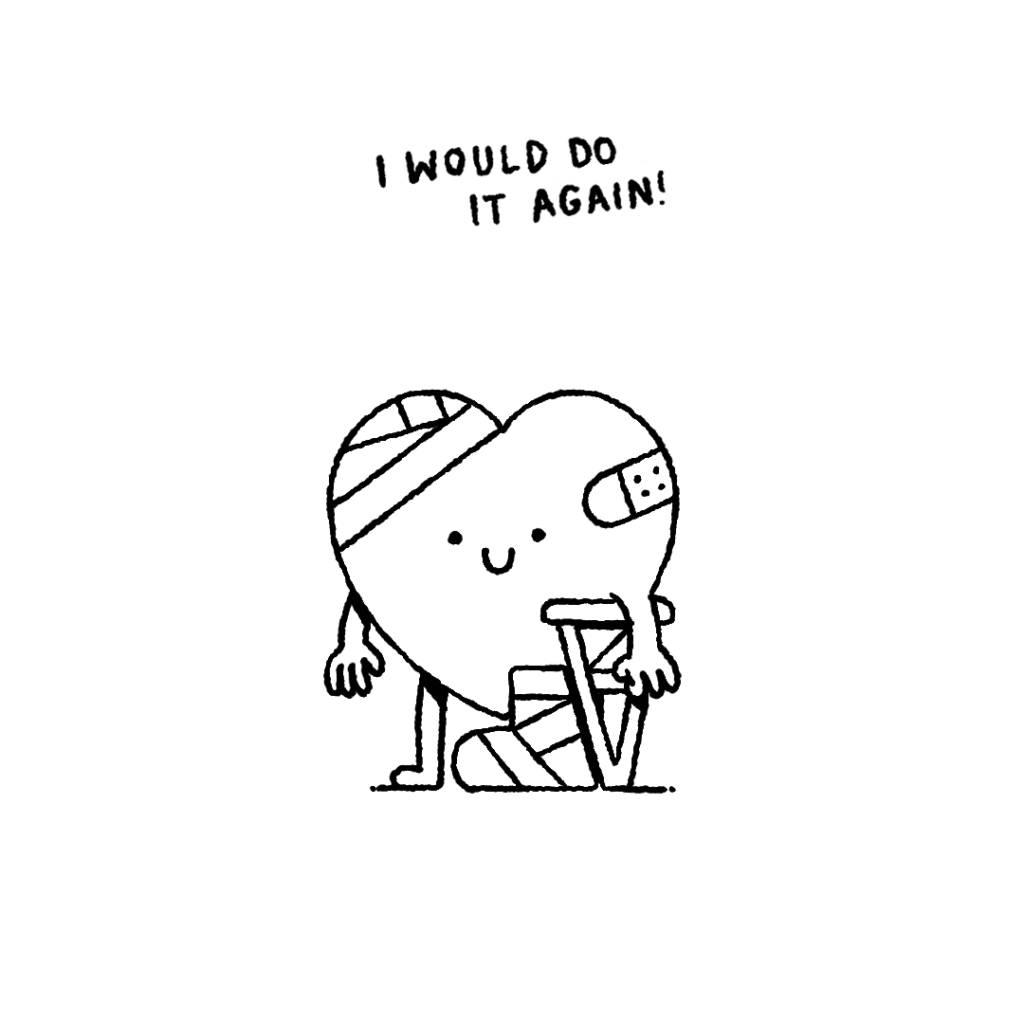
Heartbreak si mwisho wa dunia! I promise
If your friend has been there for you during one of your heartbreaks, here’s a list of gifts you should get them.

Meghan Markle Delays Netflix Series Premiere Due To LA Wildfires

Satire Meets Culture On New Comedy Series ‘A Very Kenyan Sketch Show’

Netflix Set To Debut A Gripping Kenyan Drama Series ‘Mo-Faya’
Trending

 Entertainment2 years ago
Entertainment2 years agoKenyan Movie Disconnect: The Wedding Planner Is Now Streaming On Netflix

 A Chat With4 years ago
A Chat With4 years agoA MOMENT WITH SHARON WENDO, FOUNDER OF EPICA JEWELLERY

 A Chat With3 years ago
A Chat With3 years agoFind out why ‘mutura is not a street food’ as Wanjira Puts it!

 A Chat With3 years ago
A Chat With3 years agoAre men allowed to cry?

 A Chat With3 years ago
A Chat With3 years agoA chat with one of the biggest female Djs right now, Dj Redbone

 A Chat With3 years ago
A Chat With3 years agoKenyans make the best music in the world, Ayrosh

 A Chat With3 years ago
A Chat With3 years agoA chat with Atieno: A young radio personnel doing her thing behind the mics

 A Chat With2 years ago
A Chat With2 years agoIMA: A Tale of Music, Love & Law | The Vibe Chat

